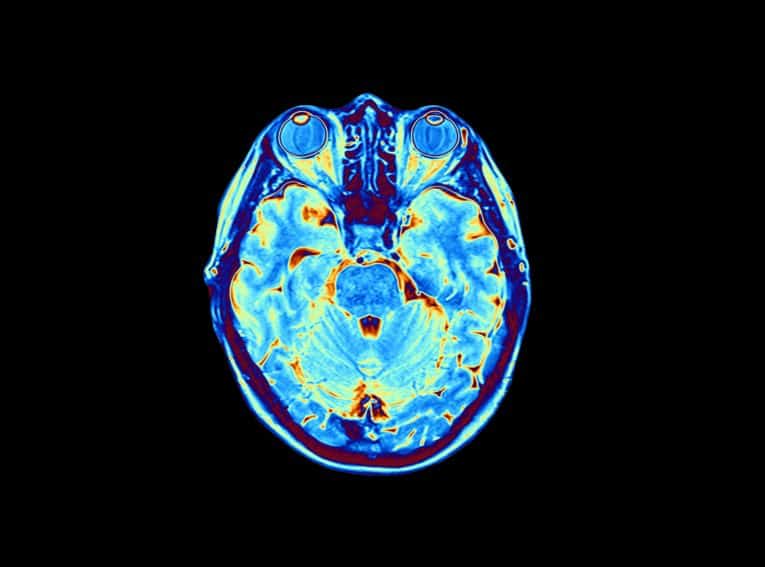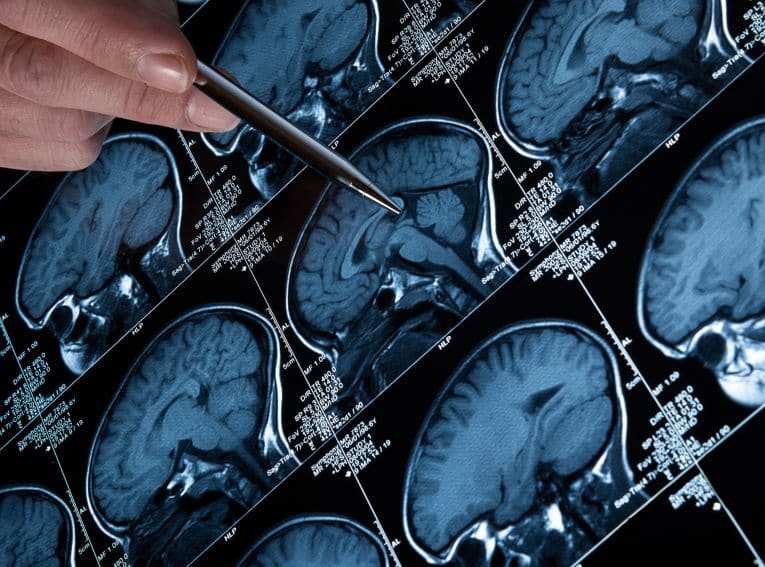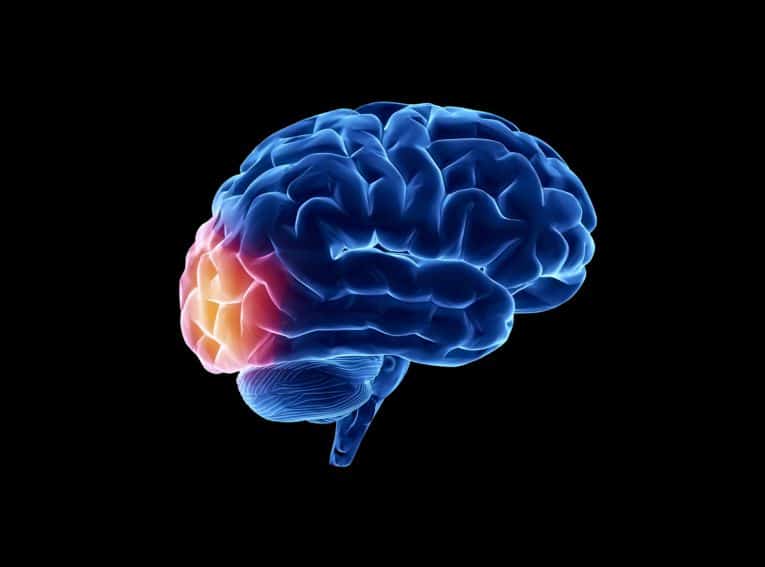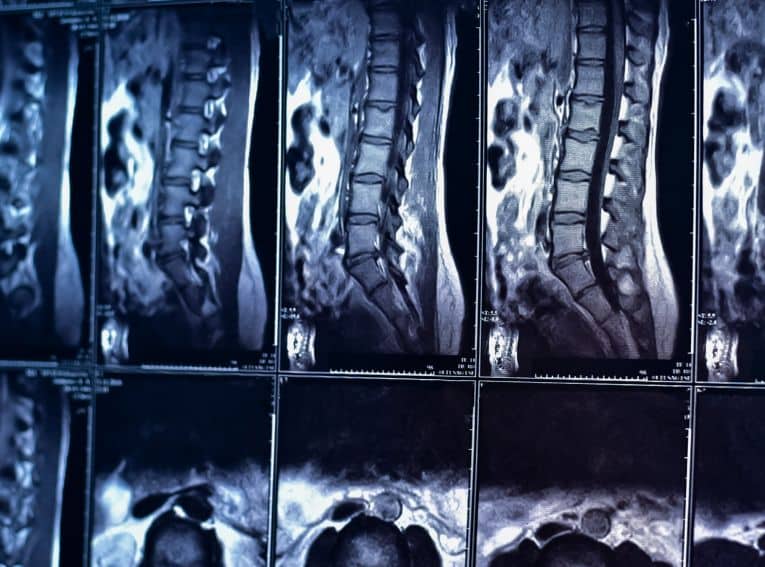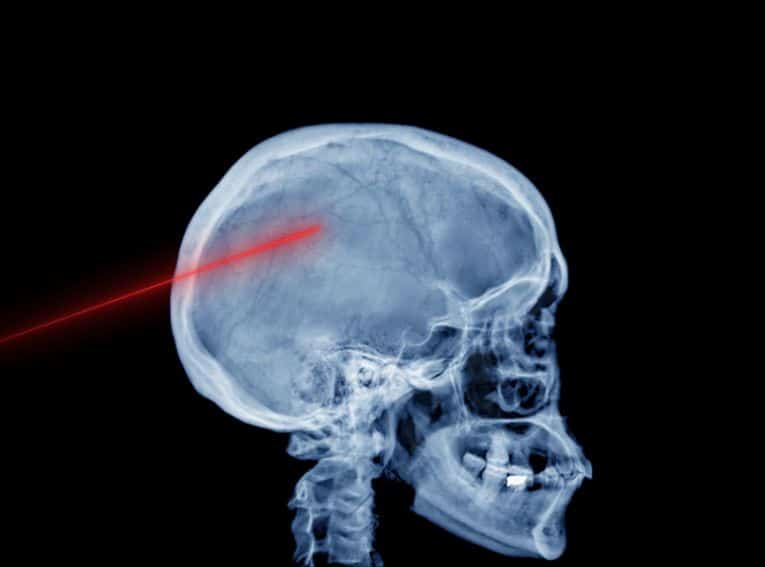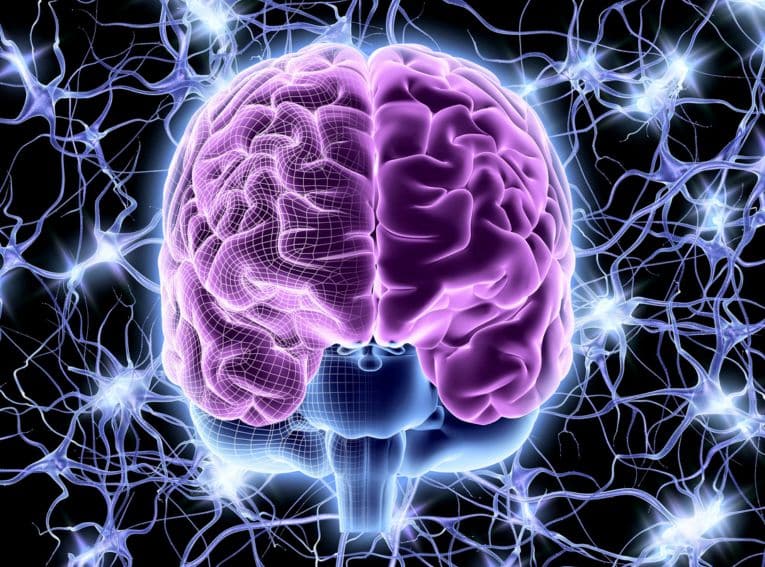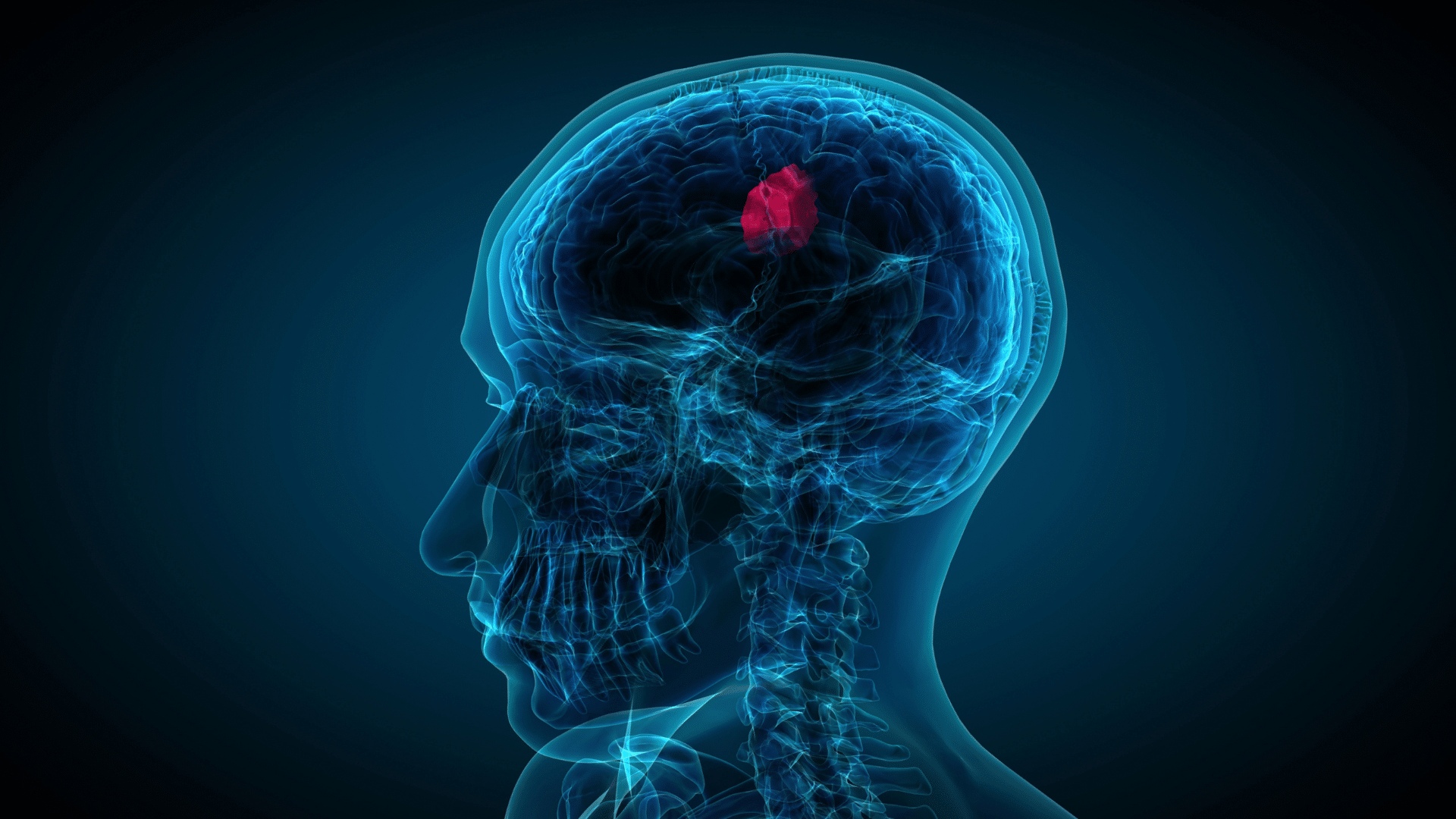
Brain Tumors
Brain tumors can be classified in two ways. Primary brain tumors originate in the brain or the spinal canal, whereas secondary tumors spread from other areas of the body to the brain or the spinal canal. Approximately 25 percent of brain tumors are secondary, and all secondary brain tumors are malignant. The majority of secondary brain tumors are caused by lung cancer that has metastasized.
Primary brain tumors, however, may be benign or malignant. They develop from different types of brain tissue, and are often named after the areas in which they originate. Primary benign tumors usually grow very slowly; primary malignant tumors usually grow rapidly and are life-threatening. Although a primary malignant brain tumor is sometimes referred to as a “brain cancer,” unlike most types of cancer, it rarely spreads to other parts of the body. It can, however, spread within the brain and spinal cord.
Risk Factors for Primary Brain Cancer
The specific cause of primary brain cancer, and why it develops in some people rather than others, is unknown. It is believed, however, that certain factors may increase the risk of developing it. Some of these risk factors include:
- Family history of brain cancer
- Cigarette smoking
- Exposure to ionizing radiation
- HIV infection
- Exposure to environmental toxins
Ionizing radiation is produced by cancer-treating radiotherapy and atomic bombs. There is no proven link between brain cancer and radiation from microwaves or cell phones.
Symptoms of Brain Tumor
The symptoms of both a benign and malignant brain tumor are usually caused by the swelling and inflammation caused by the growing tumor, and by its pressing on other parts of the brain, which prevents the brain from functioning as it should. However, brain tumors may also be asymptomatic. Common symptoms of both benign and malignant brain tumors include:
- Headache
- Weakness
- Seizures
- Difficulty walking
- Clumsiness
Because they tend to have defined margins, and be rooted less deeply than malignant brain tumors, benign brain tumors are easier to remove surgically.
Types of Primary Brain Tumors
Accounting for approximately half of all cases, gliomas are the most common primary brain tumors. They also account for 80 percent of malignant primary brain tumors. Other types include:
- Meningiomas
- Medulloblastomas
- Vestibular schwannomas
- Pineal gland and pituitary gland tumors
- Primary central-nervous-system lymphomas
The most common type of primary malignant brain tumor in children is medulloblastoma. Most cases occur in boys, and before the age of 10.
Diagnosis of Brain Tumors
The first step in diagnosing brain tumors involves getting a thorough neurological exam, in which, among other things, eye movement, the optic nerve, and balance and coordination are checked. If results of a neurological exam indicate a possible tumor, the following tests may be performed:
- CT scan
- MRI scan
- PET scan
- X-ray
- Various laboratory tests
If the tests above indicate the presence of a brain tumor, either a surgical biopsy or a stereotactic biopsy is performed; both remove a sample of the tumor for microscopic examination.
Treatment for Brain Tumors
Treatment for brain tumors varies based on a number of factors:
- Tumor location
- Tumor size
- Tumor type
- Patient’s age and medical history
Treatments for both malignant and benign brain tumors include:
- Surgery
- Chemotherapy
- Radiation therapy
- Stereotactic radiosurgery
- Steroids
Surgical removal is the preferred treatment for a brain tumor, unless the tumor is in an area of the brain that makes surgical removal impossible.
Side Effects of Treatment for Brain Tumors
Depending upon the type of treatment used, side effects may include:
- Headaches
- Nausea
- Vomiting
- Fatigue
- Hair loss
- Blood clots
- Edema
Even with aggressive treatment, the long-term survival rate (5 or more years) for primary brain cancer is only 10 percent. A patient with secondary brain cancer is more apt to die from the original cancer than from brain cancer.
Welcome to the office of neurosurgeon Dr. Vikas Rao, where your health comes first. Below are some of the neurosurgical treatments that we offer in Mission Viejo, CA:
Contact us today
Your concerns are important to us, and we want to make sure all of your questions are answered so you understand your options. Please contact our office with any questions, and our team will be happy to assist you.
Give us a call
We're open to serve
Our doctor and staff are devoted to our patients. Please fill out the form below with any questions or to schedule an appointment and our team will get back to you within 24 to 48 hours.
